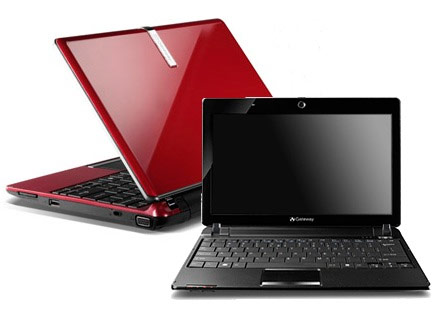AMD Not Rushing Into Tablet PC Chip Market, Focusing Instead On Netbooks
At Computex this past week, no fewer than 12 new tablet PCs were
introduced, or at least showcased behind glass for the first time.
That's a lot of iPad competition, and while most of them won't be
shipping for at least a few months, there's no doubt that Apple has a
huge target on their back. Most of these tablets ran either Android or
Windows 7, but only time will tell how well either of those systems can
do on a tablet form factor. But aside from the software story, there's a
rather large hardware story as well. Many of these tablets were shown
at Intel's booth, and while a few had chips from ARM and Qualcomm, it's
clear that Intel doesn't plan on being left out. After all, that's why
they introduced "Oak Trail."
But if Intel's getting into the tablet PC chip game, doesn't that mean that their main rival in the consumer realm should be following closely behind? Not so fast. According to general manager of Products Group Rick Bergman, AMD isn't really in a hurry to follow the leader and play bandwagon chaser. The company views the new tablet market as a growing one, with an unsettled ecosystem and a questionable future. Bergman stated that his company is "still evaluating the tablet PC market and will wait until market demand starts to appear before joining," commenting that AMD plans to go full-throttle into the netbook market in the time being.

We know some of you may be shocked to hear the news, or downright angry that AMD is ignoring such a huge potential market. But should you be? AMD has followed Intel for a long while, often times coming up with chips that are "too little, too late." Those kinds of mistakes are costly, and chasing a tail around hinders a company's ability to focus on a core set of products that they can innovate on. On that note, we're glad to see AMD holding back. The netbook market is clearly more proven, and if AMD can get a foothold in that with their Fusion APU, they could begin raking in cash for use in R&D elsewhere. AMD doesn't really have the resources that Intel does to chase every rabbit down their hole, and we're glad to see the company taking a step back and closely evaluating this decision. In the long run, AMD may be able to pull ahead elsewhere as it focuses on other key areas while Intel tries to catch up in the tablet market place. We'll see who was right in a year or two, most likely.
But if Intel's getting into the tablet PC chip game, doesn't that mean that their main rival in the consumer realm should be following closely behind? Not so fast. According to general manager of Products Group Rick Bergman, AMD isn't really in a hurry to follow the leader and play bandwagon chaser. The company views the new tablet market as a growing one, with an unsettled ecosystem and a questionable future. Bergman stated that his company is "still evaluating the tablet PC market and will wait until market demand starts to appear before joining," commenting that AMD plans to go full-throttle into the netbook market in the time being.

We know some of you may be shocked to hear the news, or downright angry that AMD is ignoring such a huge potential market. But should you be? AMD has followed Intel for a long while, often times coming up with chips that are "too little, too late." Those kinds of mistakes are costly, and chasing a tail around hinders a company's ability to focus on a core set of products that they can innovate on. On that note, we're glad to see AMD holding back. The netbook market is clearly more proven, and if AMD can get a foothold in that with their Fusion APU, they could begin raking in cash for use in R&D elsewhere. AMD doesn't really have the resources that Intel does to chase every rabbit down their hole, and we're glad to see the company taking a step back and closely evaluating this decision. In the long run, AMD may be able to pull ahead elsewhere as it focuses on other key areas while Intel tries to catch up in the tablet market place. We'll see who was right in a year or two, most likely.

